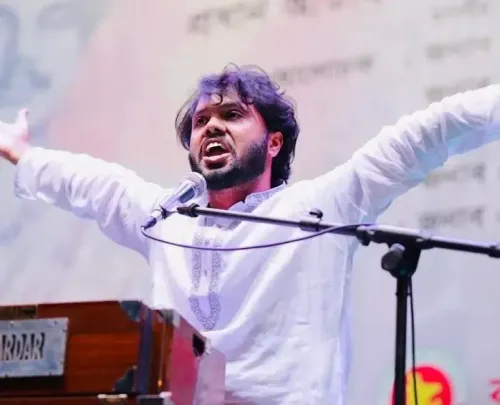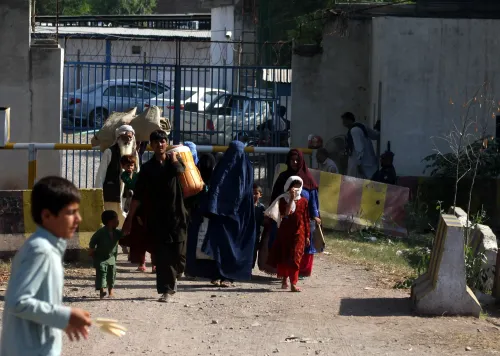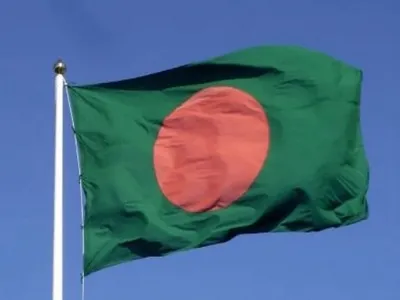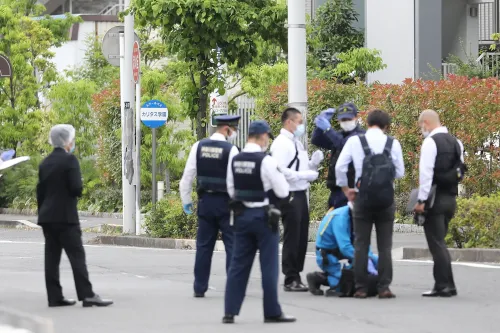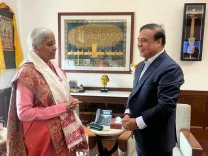Yoon Suk Yeol: South Korea's Second President Ousted from Office
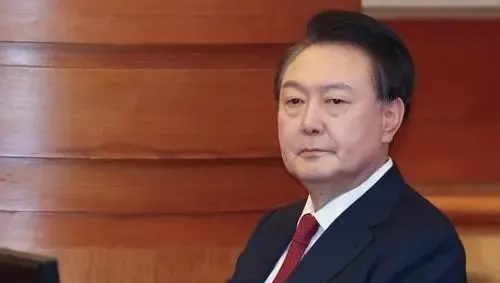
Synopsis
Key Takeaways
- Yoon Suk Yeol has been removed from office by the Constitutional Court.
- He attempted to impose martial law, leading to political unrest.
- He is the second president to be impeached, following Park Geun-hye.
- Yoon served less than three years of his five-year term.
- A snap presidential election will occur within 60 days.
Seoul, April 4 (NationPress) Yoon Suk Yeol, the former President of South Korea, who remarkably transitioned from a top prosecutor to the presidency in approximately three years, has become the second President in the nation’s history to be officially removed from office. His unexpected bid for martial law has caused significant unrest in the country for months, exacerbating political divisions.
Earlier today, the Constitutional Court upheld the National Assembly's impeachment of Yoon due to his unsuccessful attempt to impose martial law back in December, which resulted in his immediate ousting and the loss of his presidential privileges.
This ruling means that Yoon, aged 64, joins the ranks of former President Park Geun-hye, who was removed from office in 2017 after the Constitutional Court upheld her impeachment linked to a corruption scandal.
Yoon’s career began as a prosecutor in 1994, where he ascended to lead the investigation into Park's corruption, which ultimately led to her removal and imprisonment.
In 2019, he became the nation’s highest prosecutor under then-President Moon Jae-in. However, he faced conflicts with the administration while overseeing investigations involving family members of former Justice Minister Cho Kuk.
After stepping down in 2021 under increasing pressure from the Moon administration, Yoon quickly entered politics and triumphed in the presidential election in 2022 as the conservative People Power Party candidate, as reported by Yonhap News Agency.
Yoon's presidency was fraught with disputes, particularly with a National Assembly largely controlled by the main opposition Democratic Party (DP). He utilized his presidential veto power against 25 bills passed by the assembly.
Tensions with the DP escalated in early December when they introduced motions to impeach the nation’s top auditor and a senior prosecutor. Yoon's declaration of martial law on December 3 ultimately led to his downfall.
Following his mid-term removal, Yoon will no longer receive presidential benefits and will be ineligible for burial in a national cemetery.
Presidents in South Korea who complete their single five-year term receive special privileges, including a pension amounting to 95% of their salary, a staff of four, medical treatment support, an office, and a commemorative presidential project.
According to the national cemeteries management law, former Presidents qualify for burial in national cemeteries, but those removed from office due to impeachment or other disciplinary actions forfeit this benefit.
Despite his ousting, Yoon is still entitled to security protection as a former President, although this protection will be considerably less than during his presidency.
Under legislation concerning former Presidents, security measures remain in place even for those ousted due to impeachment.
Yoon and former First Lady Kim Keon Hee will continue to receive protection from the Presidential Security Service (PSS) for five years, which can be renewed if deemed necessary by the service's chief.
Yoon's security detail is expected to concentrate on safeguarding his residence, with no security convoy provided during his travel.
According to a PSS official, “In the impeachment of former President Park Geun-hye, security was focused on guarding her residence,” as reported by Yonhap News.
The Constitutional Court's decision arrived months after the National Assembly impeached Yoon on December 14 following his martial law declaration. Yoon served less than three years of his five-year term after assuming office in May 2022.
With Yoon's removal, a snap presidential election is set to take place within 60 days.


